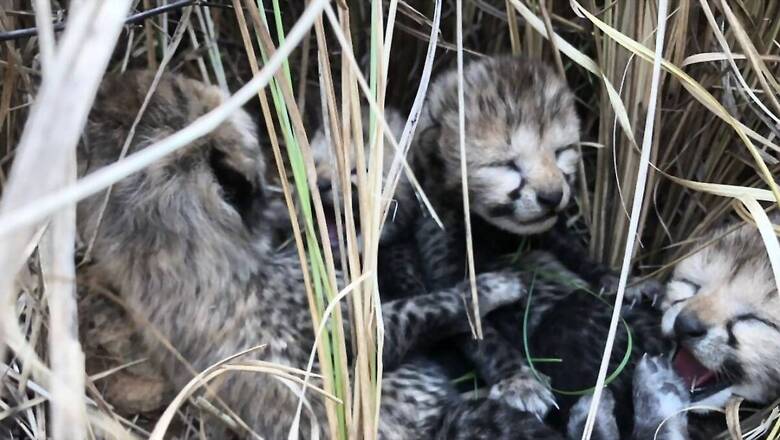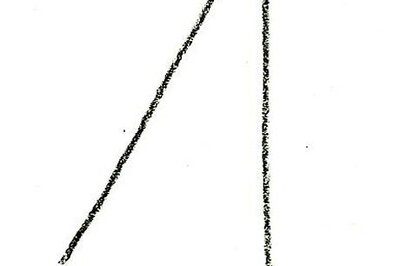
views
Almost 70 years after the cheetahs went extinct in India, four cubs were born at the Kuno National Park in Madhya Pradesh, the government announced. The cubs were born to a Namibian cheetah translocated to India last September.
The news comes seven months after India conducted one of the biggest such inter-continental translocations of a carnivore. The exercise is part of the government’s ambition to restore the population of the fastest wild cats hunted down to extinction in the 1960s.
As many as eight cheetahs – three males and five females, all aged between 2.5 and 5 years – were translocated from Namibia. This was followed by another batch of 12, including five females from South Africa in December last year.
Terming it a “momentous event in the history of wildlife conservation”, Environment Minister Bhupender Yadav said four cubs were born to one of the cheetahs translocated on 17 September 2022.
“I congratulate the entire team of Project Cheetah for their relentless efforts in bringing back cheetahs to India and for their efforts in correcting an ecological wrong done in the past,” he tweeted.
Congratulations ???????? A momentous event in our wildlife conservation history during Amrit Kaal!
I am delighted to share that four cubs have been born to one of the cheetahs translocated to India on 17th September 2022, under the visionary leadership of PM Shri @narendramodi ji. pic.twitter.com/a1YXqi7kTt
— Bhupender Yadav (@byadavbjp) March 29, 2023
The minister was also the first to share visuals of the four cubs born to the feline named Siyaya. With the global population of cheetahs fast declining, they are currently listed as Vulnerable on the IUCN’s list of endangered species.
Two days ago, the government had announced that one of the female cheetahs, Sasha, had succumbed to renal failure.
“Sasha was under the care of Project Cheetah veterinarians for a few months, so this was not unexpected. Kidney disease and renal failure are a problem for all cats, but this can be especially bad for cheetahs, which are by nature delicate creatures,” Dr. Laurie Marker, Founder and Executive Director for Cheetah Conservation Fund (CCF) had said.
You are seeing first #Cheetah cubs born in India after decades. Siyaya has given birth to four #cheetos. pic.twitter.com/f4jc2eLqJV— Parveen Kaswan, IFS (@ParveenKaswan) March 29, 2023
According to the Action Plan For Introduction of Cheetah in India envisaged by the Environment Ministry, the long-term success of the multi-crore project will depend on whether the feline species become an integral part of the ecosystem and maintain natural rates of survival — 70% for adults and 25-40% for cubs. However, in the short-term, the success of the first phase of the project would depend on achieving at least 50% survival of the introduced cheetahs for the first year, establishment of home range by cheetahs in Kuno, successful reproduction in the wild and survival of some wildborn cheetah cubs for at least over a year for the first generation to breed successfully.
The first two batches of cats from Namibia and South Africa will form a part of the founder population of cheetahs in India and will be accompanied by more cheetahs in the coming years.
Read all the Latest India News here















Comments
0 comment